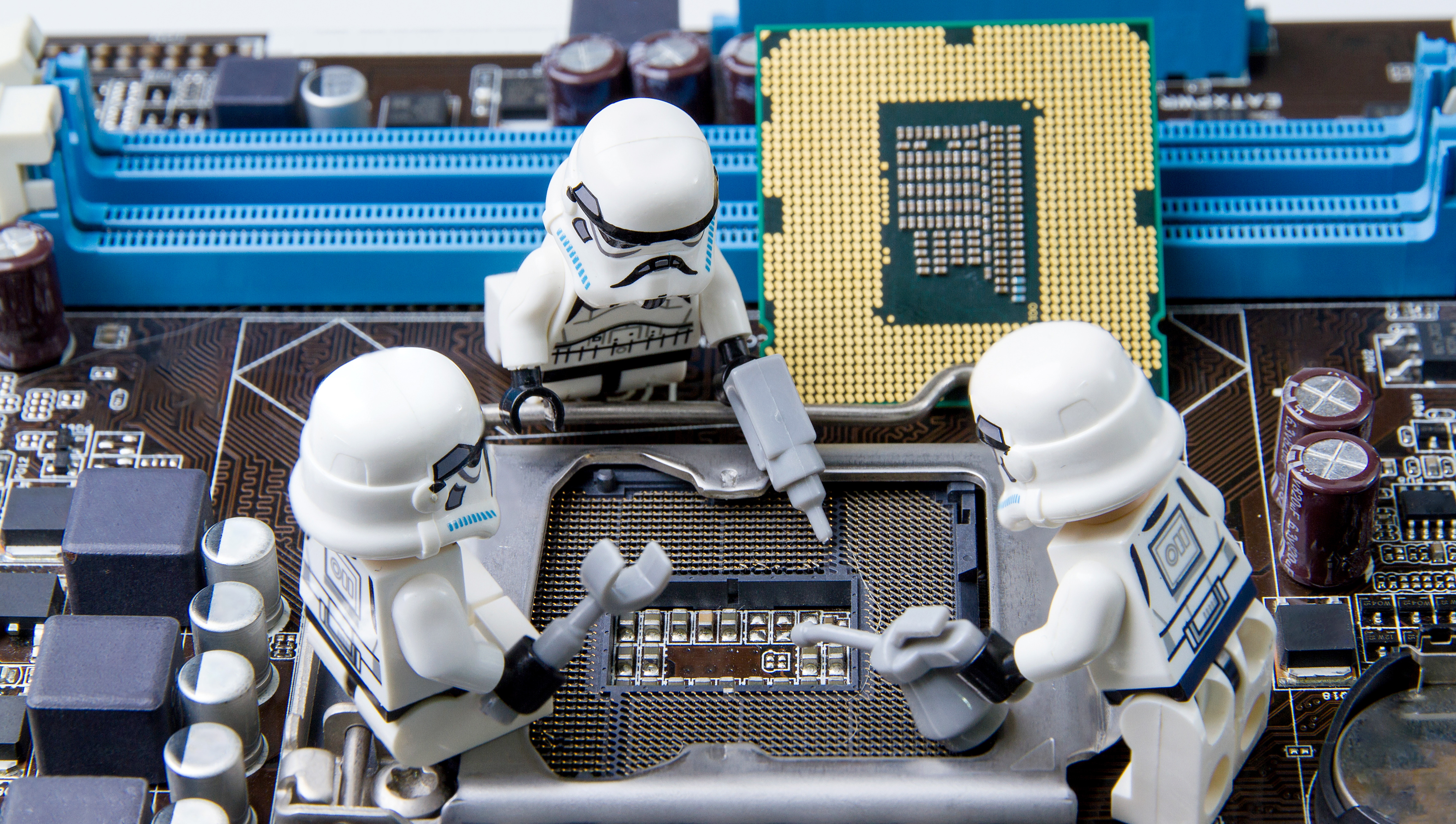Maybe it’s the fact that IFA 2019 has finally melted my brain, but I’ve been thinking a lot about the processor war between AMD and Intel, and how it apes a certain space-bound series of films set in a galaxy far, far away.
While it’s a bit too easy (and simplistic) to paint Intel as the big bad Empire, and AMD as the plucky Rebel Alliance that wants to overthrow Team Blue's tyranny, I don’t think AMD’s story – for the moment at least – resembles the original Star Wars trilogy.
Instead, I worry that it’s more like the Prequel trilogy. And yes… that means it’s not good news.
In this scenario, AMD is Anakin Skywalker while Intel is the Emperor. I guess that makes Qualcomm Jar Jar Binks.
Now you might think that comparing Intel to an evil guy with a melted face that shoots lightning from his fingers is just as reductive as comparing it to the Empire, but what do you expect from someone who just made a Jar Jar Binks joke in 2019?
Anyway, hear me out. The crux of the matter is that AMD is gunning hard to take down Intel, but there’s worrying signs that by trying to defeat Intel, it’s turning to the dark side. The thing is, AMD is supposed to be the good guy.

Bulldozing its way to victory
For a good few years now, AMD has enjoyed some excellent press. Its enthusiast Threadripper CPUs showed us that you can have consumer processors with huge core counts and still be (relatively) affordable, and its recent AMD Ryzen 3000 series of processors launched to great critical acclaim (unlike the Prequel trilogy).
This has led to stellar sales – with AMD’s shipments of its Ryzen 5 3600 chip almost equalling Intel’s entire CPU sales in some markets. Considering how dominant Intel has been for so long, this is a remarkable turnaround.
And so AMD, like Anakin, was feted as the chosen one. In Star Wars terms, AMD now had midichlorians out of the wazoo.
But, like Anakin, AMD liked its taste of power and wanted more, and the dark side was there to tempt it (don’t worry, I’m probably going to drop the Star Wars stuff now, as even I’m bored of it).
The first sign of trouble was news that a long-running class action lawsuit against AMD for its claims about its Bulldozer CPUs had been settled – with AMD having to pay out $ 12.1 million.
Back when AMD launch its FX Bulldozer processors, it claimed that it was the “first native eight-core desktop processor” in adverts – in a clear bid to win customers away from Intel.
“In Star Wars terms, AMD now had midichlorians out of the wazoo.”
However, while AMD argued that having four Bulldozer modules which each feature two CPU cores was enough to term the FX Bulldozer as an eight-core processor, many customers felt deceived, as they were not “real” cores, as they shared resources including a single floating point unit (FPU).
Being taken to court by customers who felt deceived by your marketing (and losing) is not a good look, and AMD was probably hoping this would all be forgotten about.
Maybe we’d all move on, and AMD would quietly learn its lesson about over-promising in a bid to score a win over Intel.
Only problem is… that didn’t happen.

It's like poetry
Instead, AMD has been getting in more hot water after it was discovered that its Ryzen 3000 CPUs don’t hit their advertised boost speeds.
A well-known overclocker, Der8auer, surveyed just over 2,700 users and found that only 5.6% of Ryzen 9 3900X owners reported that their processor reached its rated boost clock.
Der8auer found that only 14.7% of chips were hitting the advertised boost speed of 4.4GHz or more (only 1.8% of respondents actually bettered that speed with their processor). The vast majority – 85.3% – weren’t ever reaching the advertised boost speed at all, on any core.
So, was AMD selling processors with a promise of speeds that its products were unable to achieve? Sadly, it looks like that might have been the case. Anger over this has been mounting, and Intel even took a swipe at AMD when it announced that its upcoming Core i9-9900KS processor will reach 5GHz across all cores.
“I love the fact that AMD is bringing the heat to Intel – but I want it to do it without resorting to cheap tricks.”
There was even talk of another lawsuit being levelled at AMD over this, though there’s of course a risk of it just being a disappointing follow-up… oh right, I dropped the Star Wars schtick didn’t I?
Anyway, AMD has promised that a fix is coming to boost speeds – with the company claiming a firmware issue is to blame for the chips not reaching advertised speeds.
Now, I’m inclined to take AMD at its word on this, so maybe this wasn’t the sneaky move that some people have been accusing it of being. But, there’s still a lot of anger over how AMD kept quiet about all of this.
I love the fact that AMD is bringing the heat to Intel – but I wish it could do it without resorting to cheap tricks. It’s better than that. Stick to the high ground, AMD. We all know how that turns out.
- These are all the best processors